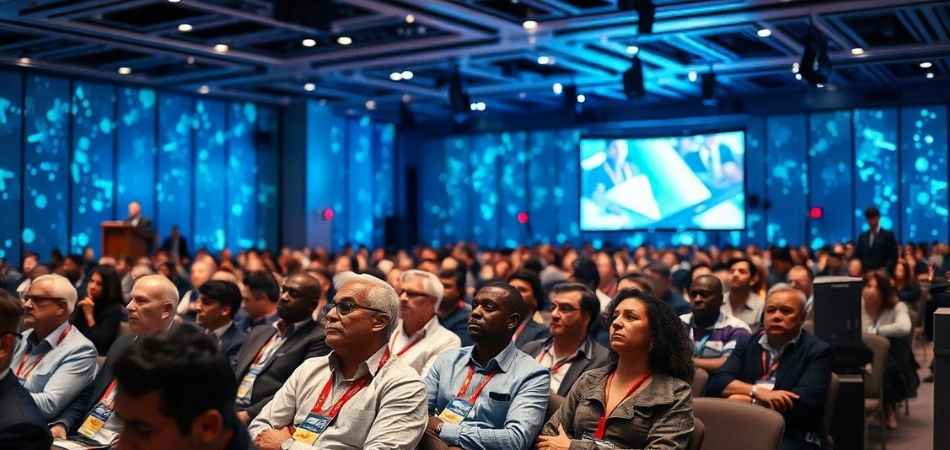International arts conferences gather creative minds from various disciplines to explore diverse perspectives in the arts. These events create opportunities for artists, educators, and industry professionals to share ideas and collaborate on innovative projects. You might be wondering, “What topics are covered at an International Arts Conference?”
At international arts conferences, topics typically range from contemporary art trends to discussions on the intersection of arts and technology. Workshops may focus on skill development, while panel discussions often highlight significant issues facing the arts community. Additionally, attendees can explore themes such as cultural representation and artistic collaboration, providing a comprehensive view of current artistic landscapes.
Are you curious about the specific subjects addressed at these conferences? By delving deeper into this article, you’ll uncover valuable insights into the topics discussed and how they shape the future of the arts.
A Glimpse Into the World of Arts Conferences
Arts conferences are vibrant gatherings where individuals from various creative disciplines converge to share their expertise and insights. These events bring together artists, educators, and scholars, creating a rich tapestry of perspectives. Attendees can participate in discussions, workshops, and presentations that foster collaboration and innovation within the arts community.
Each conference typically features a diverse range of topics that reflect current trends and challenges in the arts. Participants have the opportunity to engage with industry leaders and learn about new methodologies, technologies, and practices. These interactions not only improve knowledge but also inspire attendees to explore new ideas and avenues in their artistic endeavors.
Moreover, arts conferences serve as crucial platforms for networking and building professional relationships. Engaging with peers can lead to collaborations and partnerships that extend beyond the event. To discover more opportunities, be sure to check for upcoming international arts conferences in Canada, as these events can provide invaluable insights and connections in the world of arts.
What Topics Are Covered at an International Arts Conference?
Attending an international arts conference exposes participants to a rich array of topics that can broaden their perspective and appreciation of the arts. These discussions not only highlight current trends but also explore the historical, social, and technological contexts that shape artistic expression today. Here are some key areas typically discussed:
Historical Context and Perspectives
Discussions often begin with a look at the historical context of various art forms. Understanding the evolution of artistic practices and movements helps participants appreciate contemporary works. Scholars and artists share insights into how past influences shape current trends and methodologies.
Innovations in Art Forms
Conferences frequently showcase the latest innovations in various art disciplines. Presentations may cover new techniques in visual arts, advancements in digital media, or innovative approaches in performing arts.
These discussions can inspire attendees to adopt new methods and explore different artistic avenues.
Sustainability in the Arts
Sustainability has become a critical topic in the arts. Sessions may focus on eco-friendly practices in art production, the role of art in promoting environmental awareness, and how artists can contribute to sustainability efforts. Being aware of these issues prepares participants to incorporate sustainable practices into their work.
Arts Education
Education is another vital theme at arts conferences. Workshops and discussions often address the challenges and innovations in arts education. Topics may include curriculum development, teaching methodologies, and the importance of the arts in promoting creativity and critical thinking in students.
Intersection of Arts and Mental Health
Conferences frequently explore the relationship between arts and mental health. Sessions may discuss how participation in the arts can promote well-being and facilitate healing. Experts share research findings and personal experiences, shedding light on the therapeutic benefits of engaging in artistic activities.
Cultural Diversity and Inclusion
Cultural diversity is a significant topic at international arts conferences. Presentations often highlight the importance of representation in the arts and encourage discussions on inclusivity. Attendees can learn about initiatives aimed at promoting diverse voices and perspectives within the artistic community.
Technological Advancements
As technology continues to shape the arts, many conferences discuss its impact. Sessions may cover topics such as digital art, virtual reality experiences, and the use of social media in promoting art. Learning these advancements is essential for artists looking to stay relevant in a rapidly changing landscape.
Future Trends in the Arts
Discussions often focus on predicting future trends in the arts. Panelists may share their insights on where the industry is headed, emerging art forms, and how societal changes influence artistic practices. This forward-thinking approach prepares attendees to adapt and thrive in their artistic pursuits.
By exploring these varied topics, participants can deepen their knowledge of the arts and expand their professional networks. Engaging with experts and peers develops a collaborative environment that enhances the overall conference experience.
Why Arts Conferences Are Significant?
Attending arts conferences holds immense significance for professionals in the creative sector. These events serve as a catalyst for personal growth, collaboration, and the exchange of innovative ideas. Engaging with a diverse group of attendees can enrich your perspective and inspire new approaches in your work. Here’s a closer look at why these conferences are vital.
Professional Development
Arts conferences provide unique opportunities for professional development. Participants can attend workshops and sessions focused on enhancing specific skills. Learning from industry leaders can introduce new techniques and methodologies that can be applied in their practice.
Networking Opportunities
Networking is a key component of arts conferences. Meeting fellow artists, educators, and industry professionals can lead to valuable connections. These relationships can support collaborations, mentorships, and new projects that may not have been possible otherwise.
Knowledge Exchange
Conferences facilitate the exchange of knowledge and resources among attendees. Participants can share their experiences, challenges, and successes, creating a collaborative environment. This sharing of insights can spark innovative ideas and inspire participants to explore new avenues in their creative endeavors.
Community Building
Attending arts conferences helps build a sense of community among artists. These gatherings create an environment where individuals can connect over shared interests and passions. Creating lasting relationships with peers can lead to ongoing support and collaboration long after the conference ends.
In summary, attending international arts conferences is invaluable for personal and professional growth. Knowing the purpose of an international art conference is essential, as engaging in these events refines creativity, creates collaboration, and strengthens connections within the arts community.
The Intersection of Arts and Mental Health
The relationship between arts and mental health has garnered increasing attention in recent years. Arts can play a vital role in promoting emotional well-being and healing. Many conferences explore this intersection, highlighting research findings, personal stories, and innovative practices.
Understanding the Connection
Art can serve as a therapeutic outlet for individuals facing mental health challenges. Engaging in creative activities allows for self-expression and can facilitate emotional processing. Moreover, art therapy has proven effective in various clinical settings, providing a unique approach to treatment.
Sharing Best Practices
Conferences often feature sessions led by experts in art therapy and mental health. These presentations may share techniques and strategies for using art as a healing tool. Participants can learn about the effectiveness of different art forms, such as visual arts, music, and drama, in promoting mental wellness.
Promoting Awareness
Raising awareness about mental health issues is another critical aspect of these discussions. Conferences provide a platform for artists and mental health professionals to address stigma and advocate for greater support. This collective effort can lead to increased awareness and acceptance of mental health challenges within the arts community.
Networking with Like-Minded Individuals
Attending conferences focused on the arts and mental health enables participants to connect with others who share similar interests. Networking with professionals in both fields can lead to collaborative projects and initiatives. Building these connections can also develop a sense of belonging and support.
Promoting Creative Outlets
By discussing the intersection of arts and mental health, conferences encourage the exploration of creative outlets. Participants are inspired to incorporate art into their personal and professional lives as a means of coping with stress and promoting well-being. This approach not only benefits individuals but also enriches the broader artistic community.
How to Attend an Arts Conference in Canada
Attending an arts conference in Canada can be an exciting opportunity to expand your knowledge and network with fellow artists and professionals. However, successful attendance requires thoughtful preparation. By following these practical steps, you can navigate the process smoothly and make the most of your conference experience.
Research the Conference
Begin by researching upcoming arts conferences in Canada. Look for events that align with your interests and professional goals. Familiarize yourself with the conference’s agenda, themes, and speakers to make informed decisions about which sessions to attend.
Register for the Conference
Once you identify a suitable conference, register online. Follow the instructions on the conference website to complete your registration. Make sure to also consider the cost to attend an arts conference in Canada, as this can vary based on the ticket type you choose, whether it’s for general admission, workshops, or special events.
Prepare Your Travel Arrangements
Plan your travel arrangements well in advance. Book your flights, accommodations, and transportation to the conference venue. Having a clear itinerary will help you stay organized and reduce travel-related stress.
Gather Necessary Documents
Ensure you have all the required documents for travel and conference attendance. This may include your passport, visa, conference registration confirmation, and any additional materials you need. Organizing these documents ahead of time will help ensure a smooth journey.
Engage with Attendees
Take the opportunity to connect with fellow attendees before and during the conference. Use social media platforms to network and engage in discussions. Building relationships with other participants can improve your experience and open doors for future collaborations.
Networking Opportunities at an Arts Conference
Networking is an essential aspect of any arts conference. It allows participants to connect with like-minded individuals, share ideas, and build professional relationships. Here are some key ways to maximize networking opportunities at an arts conference.
Attend Networking Events
Conferences often host dedicated networking sessions. Participate actively in these events to meet fellow attendees and industry leaders. Engaging in conversations can lead to valuable connections and potential collaborations. Make the most of these opportunities by exchanging contact information to stay in touch after the event.
Prepare Your Elevator Pitch
Have a brief elevator pitch ready to introduce yourself to others. Clearly articulate your background, interests, and what you hope to achieve at the conference. A well-prepared pitch can leave a lasting impression and spark further conversations. Tailoring your pitch to your audience can increase its effectiveness and relevance.
Follow Up After the Conference
After the conference, reach out to the contacts you made. Send personalized messages thanking them for their time and insights. Following up helps solidify relationships and keeps the lines of communication open for future opportunities. This proactive approach demonstrates your genuine interest in maintaining those connections.
Frequently Asked Questions (FAQs)
We address some of the most common questions about attending international arts conferences. Whether you’re a first-time attendee or a seasoned professional, these FAQs provide essential insights to help you navigate your conference experience.
What Is an International Arts Conference?
An international arts conference is a gathering of artists, scholars, and industry professionals focused on discussing various aspects of the arts. These conferences often feature keynote speakers, workshops, and panel discussions. They provide a platform for diverse voices to share insights and create dialogue about current trends and issues in the arts community.
Why Should I Attend an Arts Conference?
Attending an arts conference provides valuable insights, networking opportunities, and access to industry trends. It allows you to engage with experts and peers while enhancing your knowledge and skills. Moreover, it can help you discover new techniques and artistic practices that can enrich your work.
How Do I Prepare for an Arts Conference?
Preparation for an arts conference involves researching the event, registering early, organizing travel arrangements, and gathering necessary documents. Familiarizing yourself with the agenda can help you maximize your experience. Additionally, planning your schedule ahead of time ensures you make the most of the sessions and networking opportunities.
What Topics Are Covered at an Arts Conference?
Topics at arts conferences vary widely and can include discussions on creativity, funding, cultural diversity, and the intersection of arts and mental health. Participants can explore diverse themes relevant to their interests. These discussions not only enhance knowledge but also inspire innovative approaches within their respective fields.
How Do I Network Effectively at an Arts Conference?
Networking effectively involves engaging with fellow attendees, attending networking events, and following up after the conference. Building relationships during these events can lead to fruitful collaborations and support your professional growth. Developing a strong network in the arts community can open doors to new opportunities and partnerships in the future.
Final Words
Attending an international arts conference is a valuable experience for anyone in the creative field. These events bring together artists, scholars, and industry professionals, creating an environment of collaboration and inspiration. The diverse range of discussions strengthens your understanding of various art forms and their impact on society.
So, what topics are covered at an international arts conference? The conferences typically explore themes like contemporary art practices, cultural identity, the intersection of art and technology, and the role of art in social change. Each session provides unique insights that can help shape your perspective and work in the arts.








